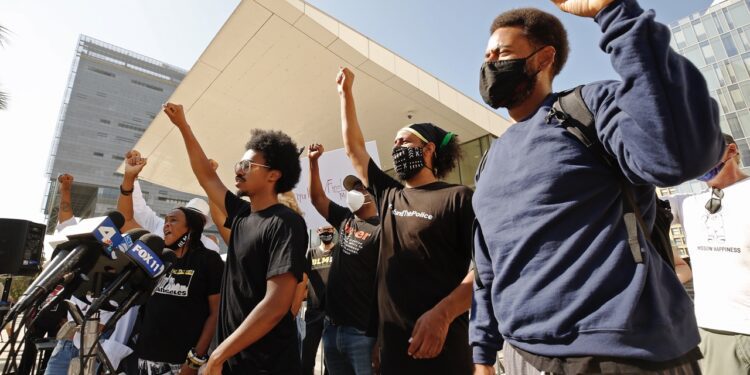Still, last year, San Francisco abruptly axed its reparations office, effectively ending any legislative work around it.Â
Some activists and researchers have said the overwhelming concentration of Black people experiencing homelessness in the state and nationwide is the “strongest case for reparations.” Los Angeles’ reparations report found that about 60% of Black residents report being impacted by environmental injustices. The report also found that over 75% of Black residents say the city policies and law enforcement practices negatively impact them.Â
Read More: The Quiet Toll of Oil Drilling on Black Los Angeles
But not everyone is sold on the likelihood of reparations. Brooke Floyd, the co-director of the Jackson People’s Assembly, a social justice organization in Mississippi, said the federal government is unlikely to pass reparations for slavery because it means federal agencies, like the U.S. Department of Housing and Urban Development and the Environmental Protection Agency, would also be forced to acknowledge their modern-day failures in protecting Black people.
“These are whole communities that have been, over time, divested from and disinvested in, and these have led to things like lack of investment in education, health care, and housing with crippling effects over time,” said Floyd, a prominent activist around Jackson’s water crisis.
“When you have this happen, have these long-term ramifications for whole races of people, acknowledging it and providing reparations is going to open a whole can of worms. I don’t think the federal government wants to do that because it shows these things are all linked together.”
Source link : http://www.bing.com/news/apiclick.aspx?ref=FexRss&aid=&tid=66cf30a6eb57486d9b4e55f1006dff3f&url=https%3A%2F%2Fcapitalbnews.org%2Flos-angeles-california-reparations-plan%2F&c=6889346086123384422&mkt=en-us
Author :
Publish date : 2024-08-28 02:00:00
Copyright for syndicated content belongs to the linked Source.












